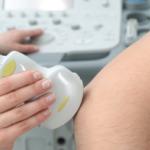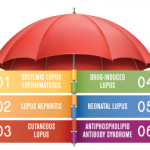The recommendations include updated disease activity measures and a new set of functional status assessment measures for rheumatoid arthritis.


The recommendations include updated disease activity measures and a new set of functional status assessment measures for rheumatoid arthritis.

“Greetings of the day!” My email account used to be flooded by these cheerful salutations, referring to me as an esteemed colleague or a thought leader. I have to admit: at first, I enjoyed receiving these messages. Normally, when I log into my email account, I’m greeted by messages—punctuated by red, capital letters—that announce dire…

Robert S. Katz, MD |
As a veteran rheumatologist, I remember the clinical trials of etanercept’s (Enbrel’s) efficacy. And when the drug was first approved in 1998, I participated in those clinical trials and realized the effectiveness was astonishing. It was easy to tell which patients were treated with etanercept vs. those who received placebo, even though both groups were…

Donald E. Thomas, MD, FACP, FACR, with Nathalie Costedoat-Chalumeau, MD, PhD, & Michelle Petri, MD, MPH, on behalf of the ARP Practice Committee |
The Johns Hopkins Lupus Center, Baltimore, has described its experience using hydroxychloroquine (HCQ) levels.1 Forty-four percent of its patients had levels below 500 ng/mL (partial nonadherence); 13% were severely nonadherent (<200 ng/mL). They were shown their results and educated on HCQ adherence. Adherence then improved to 80%; those with lower HCQ levels had higher disease…

In Arkansas, where according to the Arthritis Foundation 672,000 people live with arthritis, it’s not unusual for patients to travel at least 100 miles to see a rheumatologist.1 Michael Saitta, MD, a rheumatologist at the Arthritis Center of the Ozarks, Fayetteville, and president of the Arkansas Rheumatology Association (ARA), says patient access is a huge…

Tamar Rubinstein, MD, MS |
Current legislation that stipulates a loan repayment program for pediatric subspecialists could help the pediatric rheumatology community attract trainees and meet patient demand.

Larry Beresford |
Having completed her term as ARP president, Hazel L. Breland, PhD, OTR/L, FAOTA, CLA, has stepped into a new role as chair of the ARP’s Membership and Nominations Committee (https://www.rheumatology.org/Rheumatology-Professionals). Dr. Breland is associate professor of occupational therapy at the Medical University of South Carolina (MUSC), Charleston, where she teaches graduate students and serves as…

Wendy Ramey, BSPharm, RPh, CSP |
As the medications for rheumatology become more expensive, the need for patient financial assistance becomes paramount. Unfortunately, commercially insured patients are finding it difficult to afford the exorbitant copays required by their plans, and the latest strategy of pharmacy benefit managers (PBMs) threatens to derail rheumatologic treatment goals. High deductible plans combined with copay accumulator…

In a study in Arthritis Care & Research, researchers showed an indirect association between osteoarthritis (OA) and sleep health in older men.1 In those participants with OA, the condition is associated with poorer sleep health, as well as a 16% higher incidence of elevated C-reactive protein and 12% higher odds of having elevated interleukin 6….

During a session at the 2019 ACR/ARP Annual Meeting, Lisa Christopher-Stine, MD, MPH, provided valuable recommendations and practical insights into the care and treatment of myositis patients…

ATLANTA—Point-of-care ultrasound education mainly has occurred at the undergraduate level at U.S. medical schools, but rheumatology fellowship training programs are rapidly catching up and integrating it into their curricula, according to two program directors who reviewed the state of rheumatology ultrasound education, including potential barriers to its implementation, on Nov. 12 at the 2019 ACR/ARP…

Mike Fillon |
ATLANTA—The Hospital for Special Surgery (HSS), headquartered in New York City, uses community-based participatory research (CBPR) models to develop patient programs. One popular self-help program for arthritis patients evolved from a different initiative focused on orthopedic pain management, according to speakers in a session at the 2019 ACR/ARP Annual Meeting. According to Titilayo Ologhobo, MPH,…

Mike Fillon |
ATLANTA—The potential of cannabis‐based medicines is a hot topic, particularly as pain management therapy for arthritis and other conditions. However, confusion abounds regarding its therapeutic potential, how it can be administered and even the correct terminology to use. David P. Finn, PhD, professor of pharmacology and therapeutics, and founding co-director of the Centre for Pain…

Mike Fillon |
ATLANTA—The rheumatology profession faces a severe shortfall of practitioners that threatens the ability to address patients’ needs. “Even if we doubled the number of positions for fellowship training, we wouldn’t meet the increasing demand on our workforce,” said Marcy B. Bolster, MD, associate professor of medicine at Harvard Medical School, Boston, and director of the…

Mike Fillon |
ATLANTA—Research into possible genetic drivers of the axial spondyloarthritis (axSpA), including the role of the genetic marker HLA-B27, is advancing, John D. Reveille, MD, professor and vice chair of medicine at the University of Texas McGovern Medical School, Houston, told attendees at the 2019 ACR/ARP Annual Meeting. Dr. Reveille delivered the Philip Hench, MD, Memorial…

Mike Fillon |
ATLANTA—Two ways to investigate injuries to the upper extremities are by in-depth physical examinations and ultrasound. In a Clinical Practice session at the 2019 ACR/ARP Annual Meeting, Anatomy: Correlating Physical Exam and Ultrasound in Common Sports Injuries of the Upper Extremity, Carlin Senter, MD, FACP, associate professor of primary care sports medicine at the University…

A recent study published in Lupus Science & Medicine lays out five of the top barriers impeding progress in lupus diagnosis and treatment.1 The Addressing Lupus Pillars for Health Advancement project (ALPHA), led by the Lupus Foundation of America (LFA), researchers at the Tufts School of Medicine Center for the Study of Drug Development (Tufts…

The Stark law and the Anti-Kickback Statute (AKS) are the U.S. healthcare system’s primary fraud and abuse laws, and highly anticipated proposed reform plans from the Centers for Medicare & Medicaid Services (CMS) and the Office of Inspector General (OIG) were finally unveiled on Oct. 17, 2019. The proposed reforms would 1) clarify certain requirements…

Recent research has found a higher does of anifrolumab may benefit patients with moderate to severe SLE…

Patients with uncontrolled gout may benefit from a combination of pegloticase and methotrexate therapy, according to a small, retrospective study…

The Rheumatology Research Foundation has appointed S. Louis Bridges Jr., MD, PhD, to serve as president for a two-year term. Dr. Bridges has served as the director of the University of Alabama–Birmingham (UAB) Division of Clinical Immunology and Rheumatology since 2009. He is also the director of the UAB Comprehensive Arthritis, Musculoskeletal, Bone and Autoimmunity…

The ACR’s Volunteers to Expand Rheumatology Access (VERA) initiative recently launched a new webpage to provide helpful information to rheumatology healthcare providers interested in volunteering to care for uninsured and underinsured patients with rheumatic disease. This resource, VolunteerRheumCare.org, provides answers to frequently asked questions related to providing free care, as well as links to organizations…

Access to good training and education on practice management and coding issues has proved beneficial to physician success. Getting up-to-date information on compliance, insurance reimbursement, office efficiency, coding and billing is crucial for effective and efficient practice management. The ACR’s Committee on Rheumatologic Care (CORC) has created the premier one-day E/M Documentation Trends and Best…
Scenario 1: Direct Billing A 70-year-old female patient with rheumatoid arthritis in multiple joints and positive rheumatoid factor returns to the practice for her fourth infusion of infliximab with the nurse practitioner (NP). She reports no fevers, cough, dyspnea or concurrent illness. She rates the severity of her joint pain at 6 on a 10-point…
Take the challenge. Scenario 1—A: The nurse practitioner may act as the supervising physician if it’s within the scope of practice for the NP and should be coded as follows: CPT: 96413, 96415, J1745 x 30, J1200 x 1 Diagnosis ICD:10: M05.79 Scenario 2—A: To qualify as an incident-to service, the PA can provide the…